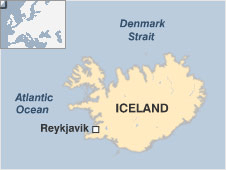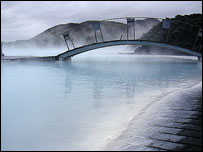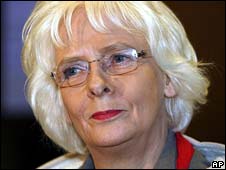Generic Medicines
Taj Pharma is the largest generic pharmaceutical company in India. We hold top positions in different established markets worldwide generics markets..
A sparsely-populated North Atlantic island Iceland is famous for its hot springs geysers and active volcanoes. Lava fields cover much of the land and hot water is pumped from under the ground to supply much of the country's heating.
 |
Iceland became an independent republic in 1944 and went on to become one of the world's most prosperous economies. However the collapse of the banking system in 2008 exposed that prosperity as having been built on a dangerously vulnerable economic model.
In recent years Iceland enjoyed a standard of living that was among the highest in the world. Its prosperity initially rested on the fishing industry but with the gradual contraction of this sector the Icelandic economy developed into new areas.

An Icelandic hot spot: Geothermal waters of the Blue Lagoon
|
By the beginning of the 21st century Iceland had come to epitomise the global credit boom. Its banks expanded dramatically overseas and foreign money poured into the country fuelling exceptional growth.
Before the global credit crunch took hold Icelandic banks had foreign assets worth about 10 times the country's GDP with debts to match and Icelandic businesses also made major investments abroad.
The global financial crisis of 2008 exposed the Icelandic economy's dependence on the banking sector leaving it particularly vulnerable to collapse.
In October 2008 the government took over control of all three of the country's major banks in an effort to stabilise the financial system. Shortly after this
Iceland became the first western country to apply to the International Monetary Fund (IMF) for emergency financial aid since 1976.
Environmental issues
In the long term Iceland's well educated workforce and its extensive and as yet largely untapped natural resources are likely to provide the key to its recovery from the economic crisis though concerns have been raised over the potential environmental impact of developing the latter.
Environmentalists have protested that a major aluminium smelter project and associated geothermal and hydroelectric schemes were being pushed through at the expense of fragile wildlife habitats.
The country has extended its territorial waters several times since the end of the 1950s to protect its fishermen and their main catch of Atlantic cod from foreign fleets.
Traditionally a whaling nation Iceland abandoned the practice in 1989 in line with an international moratorium. It later resumed scientific whaling intended to investigate the impact of whales on fish stocks and in 2006 it announced a return to commercial hunts. The move was condemned by environmental groups.
Although it has no armed forces Iceland is a member of Nato. In 1985 it declared itself a nuclear-free zone.
Iceland also has for a long time shown no desire to join the European Union but public opinion changed as a result of the 2008 financial crisis. In July 2009 the country formally applied for accession.
The last US troops left in September 2006. American forces had been stationed in the country without a break since World War II. The US says it will continue to defend Iceland as a Nato ally.
President: Olafur Ragnar Grimsson
Prime minister: Johanna Sigurdardottir
Social Democrat Johanna Sigurdardottir took over as head of a centre-left coalition in January 2009 after protests about Iceland's economic collapse brought down the government of Geir Haarde.

Ms Sigurdardottir is a former flight attendant and union organiser
|
Many blamed the crisis on Mr Haarde's centre-right Independence Party which has dominated Icelandic politics since full independence from Denmark in 1944.
Coming to power at the head of a coalition of her Social Democratic Alliance and the Green-Left Party the new PM said her immediate priority would be to restore the public finances.
Her new government was confirmed in office with a resounding victory in parliamentary elections in April 2009 winning 34 out of 63 seats. It was the first time that centre-left parties had won a majority of seats since independence.
In June the centre-left dominated parliament voted to apply formally for membership in the European Union seen by many in Iceland as offering a
way out of its economic woes.
Ms Sigurdardottir is Iceland's first female prime minister and the world's
first openly gay head of government.
Born in Reykjavik in 1942 Ms Sigurdardottir studied commerce going on to work as a flight attendant trade union organiser and office worker. She was elected to parliament for the Social Democratic Party in 1978.
She was social affairs minister from 1987 until 1994 when she unsuccessfully stood for her party's leadership. She then formed her own party the National Movement.
Five years later Ms Sigurdardottir's party merged with the Social Democrats and two other centre-left groups to form the Alliance in an effort to counter to the right-wing Independence Party.
In 2007 the Alliance came to power in coalition with Mr Haarde's Independence Party with Ms Sigurdardottir again serving as social affairs minister.
National radio and TV services are provided by the Icelandic National Broadcasting Service (RUV) a public-service broadcaster owned by the state.
The RUV is obliged to promote the Icelandic language and the nation's history and cultural heritage. Its services are funded by a licence fee and by advertising revenues.
The Icelandic constitution guarantees press freedom. There is a wide range of publications which includes privately-owned and party-affiliated newspapers.
The press
Television
Radio
Bylgjan - main private station
AFRICA | ASIA-PACIFIC | AMERICAS | EUROPE | MIDDLEEAST | SOUTHASIA
![]()
![]()
![]()
Mauritania Mauritius Morocco Mozambique Namibia Niger Nigeria Republic-of-congo Rwanda Sao-tome-and-principe Senegal Seychelles Sierra-leone Somalia South-africa Sudan Swaziland Tanzania The-gambia Togo Tunisia Uganda Australia Brunei Burma Cambodia China East-timor Fiji Indonesia Japan Kazakhstan Kiribati Kyrgyzstan Laos Malaysia Marshall-islands Micronesia Mongolia Nauru New-zealand North-korea Palau Papua-new-guinea Samoa Singapore Solomon-islands South-korea Taiwan Tajikistan Thailand The-philippines Tonga Turkmenistan Tuvalu Uzbekistan Vanuatu Vietnam Antigua-and-barbuda Belize Bolivia Brazil Canada Chile Colombia Costa-rica Cuba Dominica Dominican-republic Ecuador El-salvador Grenada Guatemala Guyana Haiti Honduras Jamaica Mexico Nicaragua St-kitts-and-nevis St-lucia Suriname Trinidad-and-tobago Uruguay Venezuela Albania Andorra Armenia Austria Azerbaijan Belarus Belgium Bosnia-hercegovina Bulgaria Croatia Cyprus Czech-republic Denmark Estonia Finland France Georgia Germany Greece Hungary Iceland Ireland Italy Latvia Liechtenstein Lithuania Luxembourg Macedonia Malta Moldova Monaco Montenegro Norway Poland Portugal Russia San-marino Serbia Slovakia Slovenia Spain Sweden Algeria Egypt Iran Iraq Israel-and-palestinian-territories Jordan Kuwait Lebanon Libya Mauritania Oman Saudi-arabia Sudan Syria Tunisia United-arab-emirates Yemen Afghanistan Bangladesh Bhutan India Nepal Pakistan Sri-Lanka The-Maldive